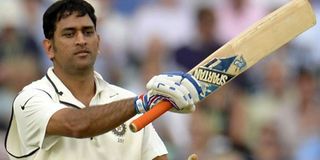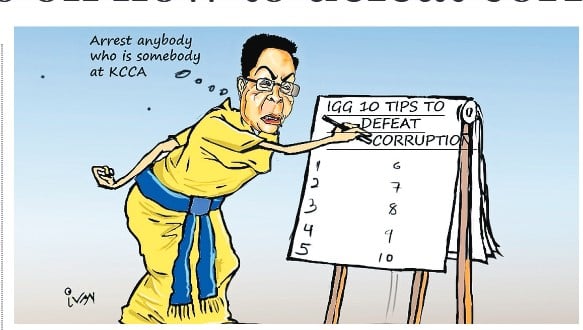Prime
Mahendra Singh Dhoni Tribute: The leader India needed

What you need to know:
While researching his profile on Dhoni for The Cricket Monthly, Sidharth Monga made an important discovery about what shaped Dhoni’s outlook towards success and failure on the cricket field
A UNIQUELY REMARKABLE MAN:
MS Dhoni left his Test team much like he led it - without fanfare and an overt display of emotion. Indian cricket will know what it has lost only after he is gone, writes Cricinfo’s Sambit Bal.
D honi wasn’t India’s greatest Test captain. But then who was? After leading India to its first World Cup win in nearly 30 years, he presided over India’s worst run in Test cricket overseas, including a 0-8 washout in England and Australia in 2011-12.
He didn’t seize the moments that mattered, too often he hung back, played the waiting game, took the feet off the pedal, let the game drift, and gave the appearance that he didn’t care enough about winning and didn’t hurt enough about losing.
Of course it is our job to assess and judge. But about the last two things how could we be sure? How could we tell that he didn’t care? That he didn’t hurt? Or even that he was not trying to win? He could be judged on his methods of course, but only he could have been privy to his motivation and his desires. And how much could he really be blamed for a serially malfunctioning batting group that consisted of four of India’s greatest? Or a group of pace bowlers who simply couldn’t construct a few sessions of bowling without losing their lines, lengths and the plot?
That said, though, as borne out by results, a case can be made that he was in his element, in his comfort zone, leading India in one-dayers and Tests at home. He had worked out his limited-overs strategy to perfection. That he was India’s best ODI batsman and one of the best finishers in the history of the game allowed him to captain in his own tempo for he knew if everything failed he could back himself to win a game off his own bat. And in home Tests, he had found a way to make optimal use of his limited bowling resources because he could rely on the certainty of the pitches.
But captaining India is only partly about tactics. Increasingly, as Virat Kohli will soon discover, it is about keeping your wits and your sanity. Early in his career Dhoni grasped the futility of adulation, because he was also exposed to the repercussions of failure.
DIFFERENT CAPTAIN
While researching his profile on Dhoni for The Cricket Monthly, Sidharth Monga made an important discovery about what shaped Dhoni’s outlook towards success and failure on the cricket field. In 2007, in a matter of months, Dhoni had the taste of two extremes: the over-the-top celebrations after he had led India to an unexpected win the World Twenty20 in South Africa, and the depraved vilification in the wake of India’s early exit from the World Cup in the West Indies. It convinced Dhoni that in order to stay real, he had to develop a detachment, that he couldn’t take either success or failure too seriously. From this emerged a cultivated air of indifference and what he regarded as a healthy cynicism towards the media.




